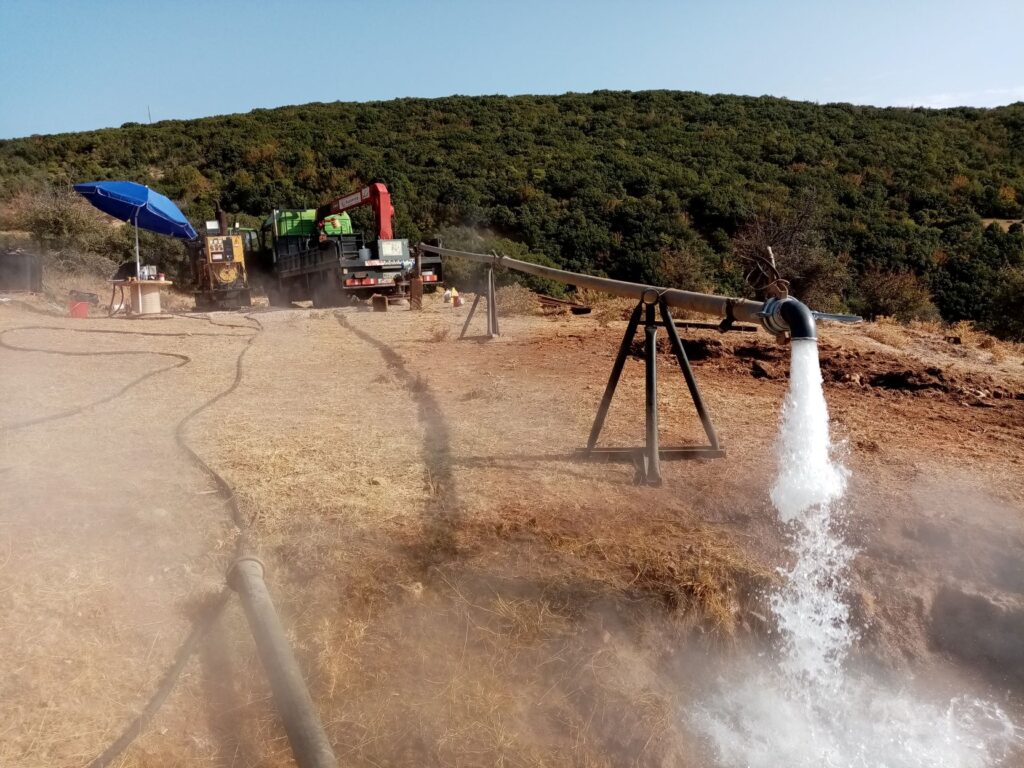
The drilling and testing of the geothermal research well in Sidirokastro was made possible by the Hellenic Survey of Geology and Mineral Exploration (HSGME), m0re specifically Drs. Apostolos Arvanitis – Head of Geothermal and Thermal Natural Resources Department (GEOTHE), Vasileio Zorapa – Head of Hydrogeology and Hydrology Department (HYDROGE), Panagiotis Vakalopoulos – Geologist of GEOTHE Department and Vasileio Maramatha – Project Manager of HYDROGE Department.
The borehole was drilled to a total depth of 153.80 meters, tapping a resource with a hydrostatic level of 91.85 meters. The well had an internal diameter of 8 inches at depth. A special underwater pump assembly with maximum 40 hp and temperature resistance up to 90 °C was used and set at 109.2 meters depth.
During testing, a stable supply was achieved at a flowrate of 75 cubic meters per hour. Recover of the hydrostatic level was fairly quick at only 22 seconds after a drop of 2.10 meters. Temperature was stable during flow testing within a range of 78.0 to 78.2 °C and measured pH was stable at 6.63.
The team estimates that the resource can support a stable flowrate of at least 120 cubic meters per hour with a larger-diameter borehole.
The very encouraging results of the test pumping reinforced the interesting utilization of geothermal energy in general in the County of Serres and was a subject of discussion for further utilization in the meetings held by the EAGME with local government bodies and services.
The HSGME had previously published a paper that establishes management standards for low-enthalpy geothermal fields in Greece, in order to achieve the rational and sustainable utilization of the low-enthalpy resources.
Mining and test pumping of large-diameter geothermal research borehole took place within the framework of the Sub-project “ACTIONS FOR THE ORTHOLOGICAL AND SUSTAINABLE VALUATION OF GEOTHERM” of the Act: “Studies and research to support the energy sector of industry and entrepreneurship – OPYGEK”, executed by the Department of GEOTH of EAGME and funded by the Business Program “Competitiveness, Entrepreneurship, Innovation” – EPANEK.